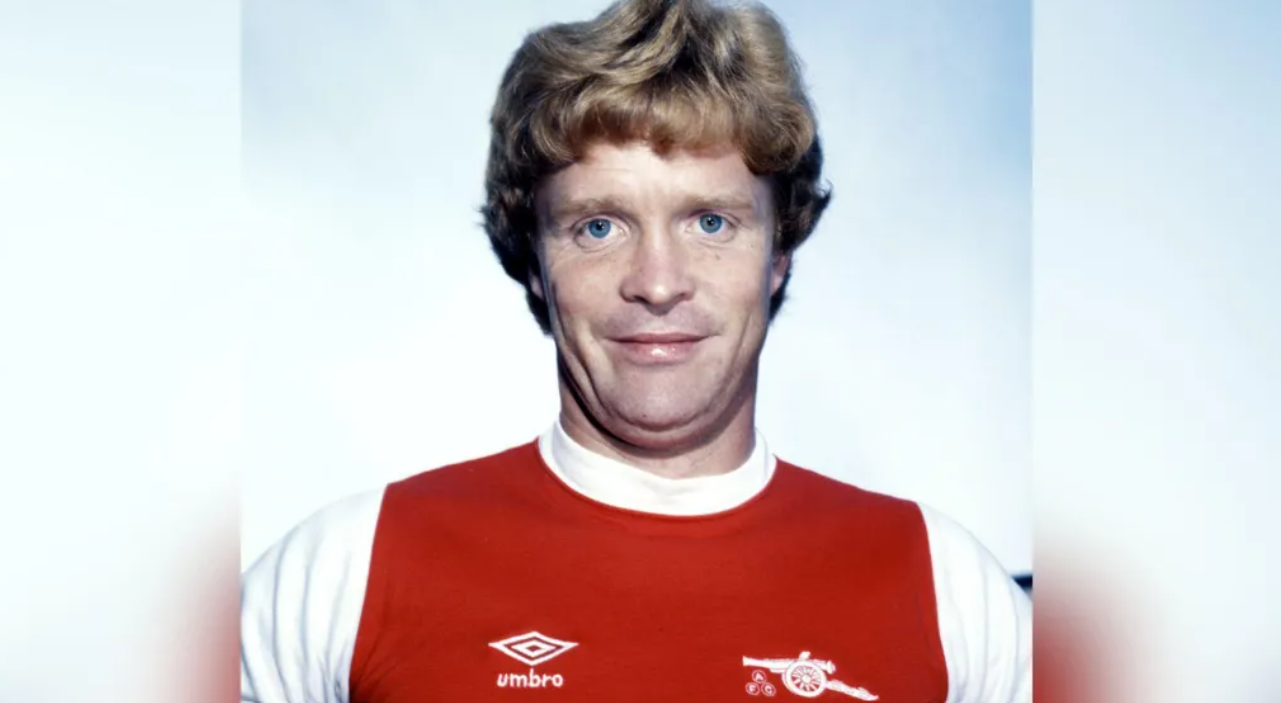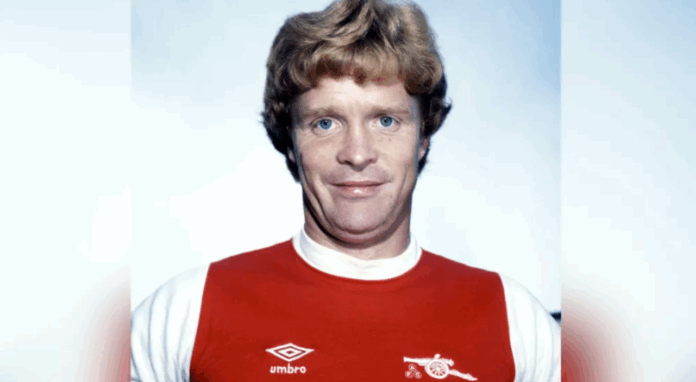London, UK — Former Aberdeen, Arsenal, and Tottenham Hotspur defender Willie Young has died at the age of 73, the clubs have confirmed. The Scottish centre-back, known for his commanding presence, fierce tackling, and memorable spell in English football during the 1970s and early 1980s, leaves behind a remarkable legacy that stretched across more than a decade at the top level.

Born in Edinburgh and raised in Heriot, Midlothian, Young began his professional career at Aberdeen in 1970. Standing at 6ft 3in, he quickly became known for his aerial dominance and no-nonsense defensive style. Over five seasons with the Dons, he made more than 180 appearances, establishing himself as one of the most reliable defenders in the Scottish top flight before moving south to Tottenham Hotspur in 1975.
Two years later, Young made the controversial switch across North London to join Arsenal, where he reunited with his former Spurs manager, Terry Neill. Despite the rivalry between the two clubs, his move proved successful, marking the beginning of the most celebrated phase of his career.
At Arsenal, Young formed a powerful defensive partnership with David O’Leary, helping the Gunners reach three consecutive FA Cup finals between 1978 and 1980. He became a cult figure among supporters for his physical approach and determination, traits that defined Arsenal’s defensive backbone in that era.
In 1979, Young earned an FA Cup winner’s medal when Arsenal triumphed over Manchester United 3–2 in the famous “five-minute final,” one of the most dramatic in the competition’s history. Arsenal scored twice in the closing minutes to seal victory, with Young’s defensive resilience helping secure the win.
However, his name would become forever linked to one of football’s most discussed moments. In the 1980 FA Cup Final against West Ham United, with Arsenal trailing 1–0, a then 17-year-old Paul Allen broke free on goal. Young, in a desperate attempt to prevent a certain score, brought him down just outside the penalty area. Though he received only a yellow card, the foul sparked nationwide debate and ultimately led to a change in football’s laws.
The incident inspired the introduction of the rule that mandates a red card for denying a clear goal-scoring opportunity — a reform that continues to shape modern football officiating. It was a defining moment in Young’s career, one that symbolized both the ferocity and controversy of his playing style.
After leaving Arsenal in 1981, Young joined Nottingham Forest under legendary manager Brian Clough, making a handful of appearances before injuries began to take their toll. He later had short stints at Norwich City, Brighton & Hove Albion, and Darlington before retiring in 1984.
Despite his success in club football, Young’s international career was marred by controversy. He was part of the infamous “Copenhagen Five” — a group of Scotland players banned for life following an altercation at a nightclub during a tour in Denmark. The group included Joe Harper, Arthur Graham, Billy Bremner, and Pat McCluskey. While several were later reinstated after being cleared of wrongdoing, Young’s suspension remained in place, effectively ending his hopes of representing Scotland at senior level.
Following his retirement, Young stayed connected to football through punditry and community coaching. Those who knew him described him as larger-than-life — tough on the pitch but generous and humorous off it. His former teammates often spoke of his leadership and camaraderie in the dressing room, qualities that endeared him to colleagues and fans alike.
Young’s career remains a vivid reflection of British football’s gritty, physical era, where defenders were as much enforcers as they were tacticians. His influence on the game — from the trophies he lifted to the laws his actions helped redefine — ensures that his name will endure in football history.
As tributes pour in from fans and former clubs, Young is remembered not just for his imposing frame and uncompromising style, but for his role in shaping the modern rules of the game. His passing marks the end of an era for those who recall the rugged yet passionate brand of football that defined the late 20th century.


